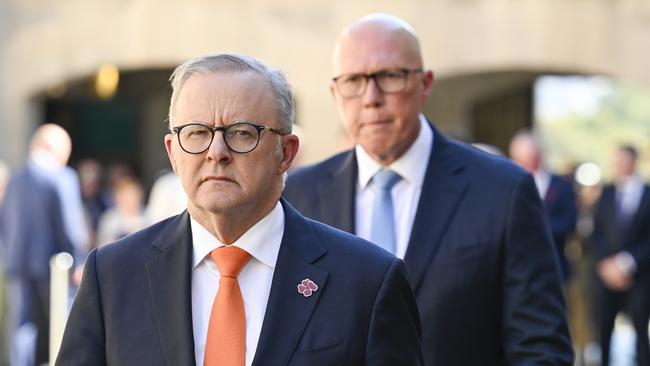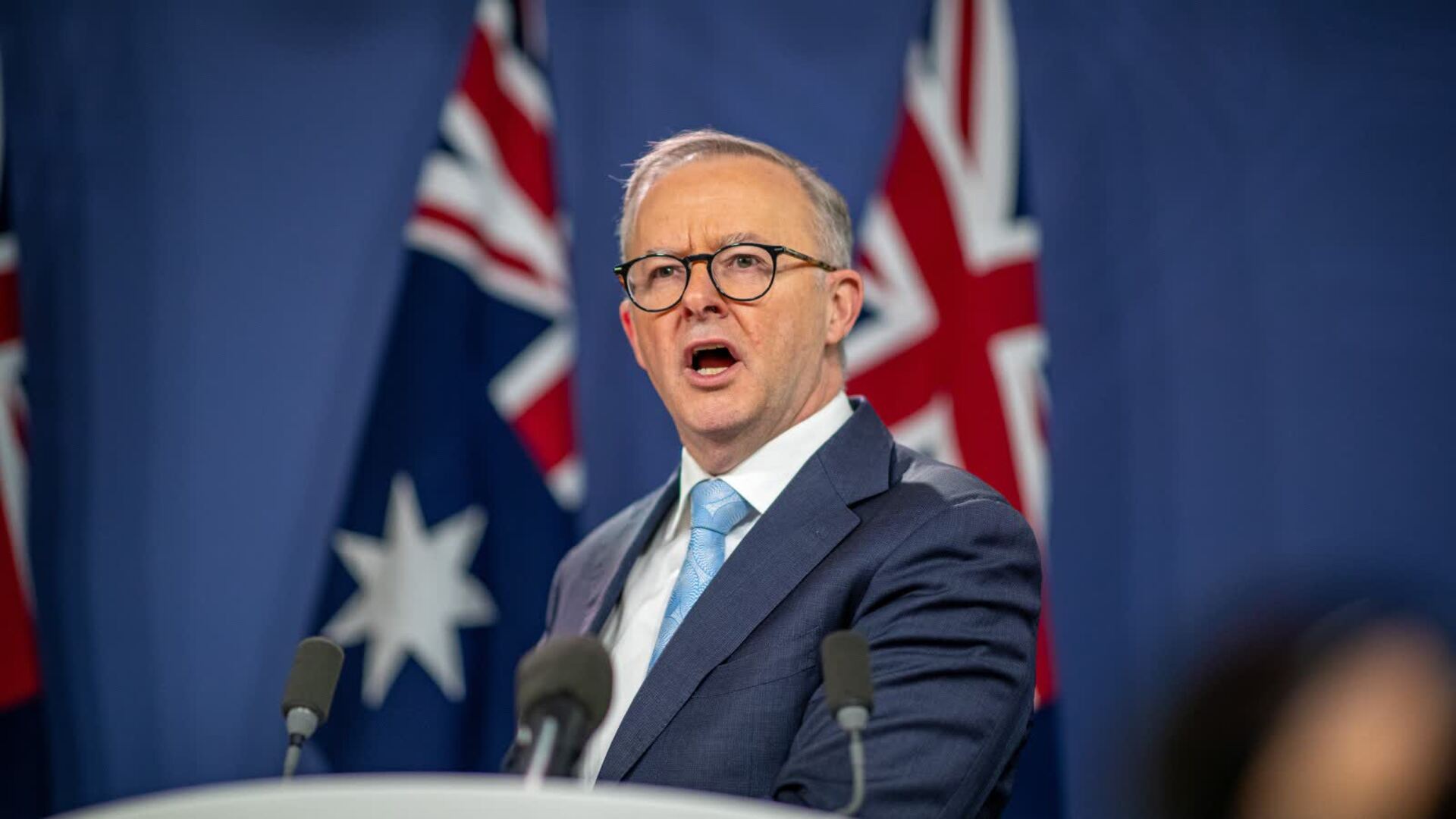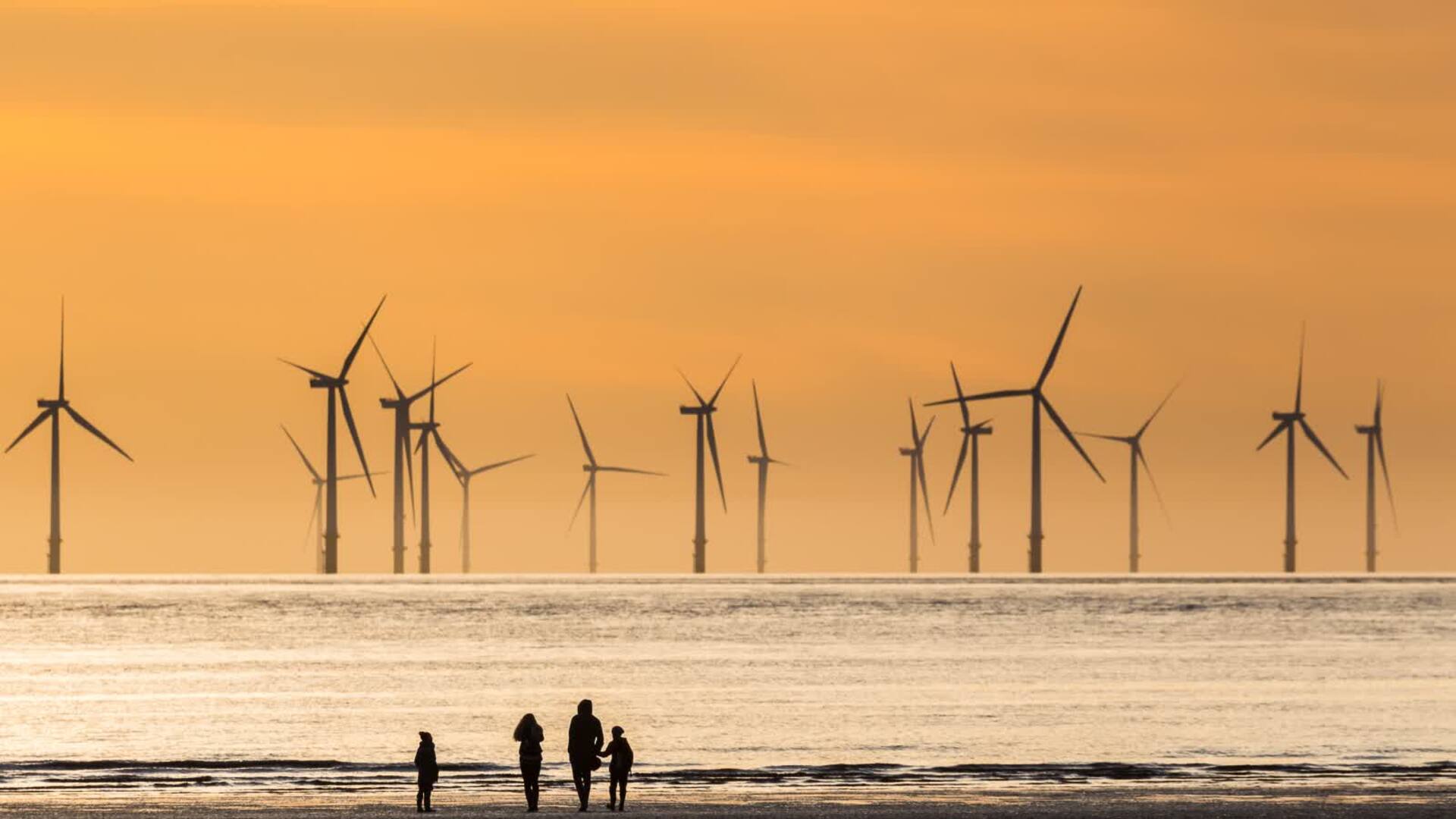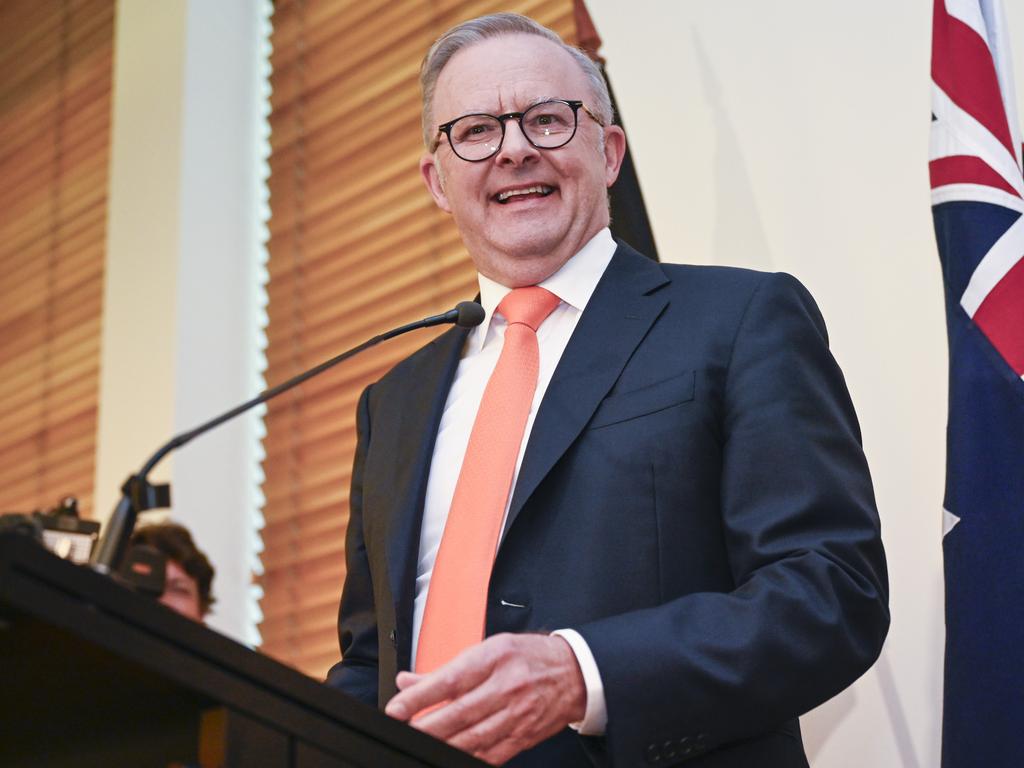
It is certainly not the plan that voters understood it to be before the last election.
Most households now live in the parallel and gloomier world – otherwise known as reality – rather than the one Canberra is trying to render as the cheerful fabric of its re-election pitch.
The Labor campaign machine must know this.
Why else would it be relying on phantoms such as the untestable claim that things would have been worse under Peter Dutton and a Coalition government?
Contrasting a known outcome to a vague and unknowable worse one only implies that your own plan isn’t actually that good in the first place.
But it is these two primitive political messages that have formed the structural basis of Labor’s campaign model; everything is going to be tickety-boo under Labor the second time around and the Opposition Leader is scary.
They are two political messages that, if polls and focus groups are any guide, they are in measurable conflict with the prevailing view of a significant proportion of the electorate.
They are also an excuse for not having a better story to tell.
The Coalition’s political equities in economic management and, oddly, cost of living, are well ahead of Labor’s.
Dutton even has a higher ranking than Albanese as a leader with vision, as counter-intuitive as this may appear to some.
This suggests fewer voters believe Labor’s claim that things could have been worse under Dutton than those who believe otherwise.

But it seems the Prime Minister and Treasurer Jim Chalmers have engaged the
post-Marxist practice that presumes, if you repetitively tell people something is true, they will eventually come to believe it, even if it’s nonsense.
The problem is that suggesting that the inflation crisis has been beaten is like trying to tell people how much money they have in their bank accounts.
This is a truth that is hard to bend.
The coming election campaign is going to be monumentally underwhelming for a number of reasons, not least of all the two above-mentioned themes.
The Coalition’s strategy is the other reason.
Dutton’s economic speech of last week was at best based on generalities, with voters expected to wait until after the election to find out what better economic management might look like.
The Opposition Leader is gambling on voters booting out Albanese while, the Prime Minister is betting that no-one is going to back Dutton.
The reductive simplicity of this approach by both sides might be comical if the outcome wasn’t one that could profoundly change the country.
At this stage of the cycle, with the election possible anywhere from late March to May, neither side is in a convincing position.
And this makes both sides hostage to events.
For instance, Donald Trump may not have yet found Australia on the map but the US President is bound to at some point. And if it is in the middle of an election campaign, anything could happen.

For the moment, however, all eyes are trained on February 18 when the central bank meets to decide on interest rates.
The political pressure being applied not so subtly to RBA governor Michele Bullock is intensifying.
The Prime Minister, in a podcast with the veteran Canberra journalist Michelle Grattan, was deliberate in his language and what he expected of the board.
“It’s not up to me as Prime Minister to tell the independent Reserve Bank what to do, but I’m certain that we’ve created the conditions through, as well, our responsible economic management,” Albanese told Grattan of what the markets are now predicting will be a rate cut.
And this is where Labor’s messaging becomes trickier. While the markets might be punting on Bullock buckling to political pressure, there are plenty of economists who believe the case for a February cut just isn’t there, considering the inflationary pressures still coming down the pipeline.
If the RBA were to reject Albanese’s case that the government had created the environment for a rate cut, Bullock would blow a giant hole in the basis of Labor’s fundamental re-election argument.
But if Chalmers gets his single rate cut, then the argument is simply going to switch to how many more and when.
The answer to that question then becomes a fresh political problem with no immediate answer.







Anthony Albanese’s assessment that Labor’s management of inflation has been going according to a grand plan is political illusion that attempts to conjure optimism from the depths of household pain.